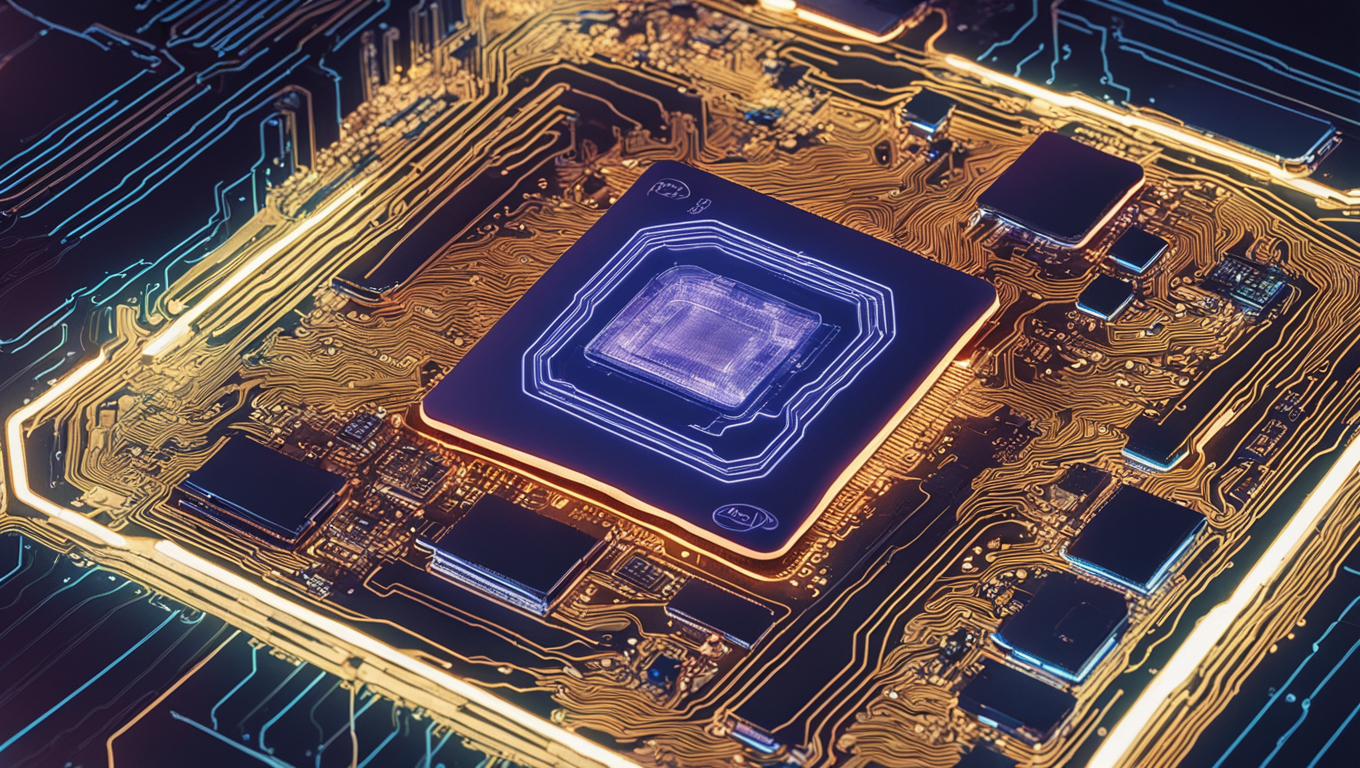Intel Unveils Revolutionary AI Chip Technology at Computex Expo: Dominating the AI Industry Amidst Rivalry
Taipei, Taiwan - In a bold move aimed at solidifying its dominance in the AI industry, US chip giant Intel unveiled groundbreaking technologies at the annual Computex expo. While facing strong competition from rivals Nvidia, AMD, and Qualcomm, Intel showcased its latest Xeon 6 processors for servers and provided detailed insights into its next-gen Lunar Lake chips for AI PCs.
During his keynote speech, Intel CEO Pat Gelsinger emphasized the significance of AI in driving innovation. “AI is driving one of the most consequential eras of innovation the industry has ever seen,” Gelsinger stated. He also highlighted how silicon technology is facilitating exponential advancements in computing, pushing the boundaries of human potential and powering the global economy.
One of Intel’s key selling points is the combination of performance, energy efficiency, and affordability that its latest equipment offers. Gelsinger boasted that Intel’s Gaudi systems, used for advanced AI tasks like training models, come at a third of the cost compared to competitors. This claim challenges the market position of rival companies in terms of cost-effectiveness.
The Computex expo saw a series of keynote speeches from industry leaders, including Nvidia’s Jensen Huang, AMD’s Lisa Su, and Qualcomm’s Cristiano Amon. Each executive made claims and counterclaims about their company’s superiority in AI products. Notably, both Lisa Su and Cristiano Amon showcased the AI chips developed by their respective companies for enhanced personal computers.
Microsoft also made waves with its unveiling of Copilot+ AI PCs, which incorporate artificial intelligence features directly into the Windows operating system. Dell, HP, Samsung, Lenovo, and other major manufacturers will offer these AI-enabled devices. The integration of AI into PCs is projected to make up 80% of the PC market by 2028, according to Intel, citing the Boston Consulting Group.
In response to Qualcomm’s assertion that its AI PC chips surpass Intel’s, Pat Gelsinger confidently rejected the claim, stating, “I just want to put that to bed right now. Ain’t true!” His statement underscores Intel’s commitment to maintaining its leadership position in the AI chip market amidst fierce competition.
The pivotal role Taiwan plays in the semiconductor industry makes the country a central player in the AI plans of major tech companies. Taiwan stands as the primary producer of the world’s most advanced semiconductors, including those crucial for powerful AI applications and research. The Taiwanese government aims to leverage these capabilities to accelerate widespread AI adoption.
At Computex, Taiwanese President Lai Ching-te expressed his vision for Taiwan as an AI smart island, emphasizing the country’s drive to harness AI’s potential. However, concerns have arisen globally due to Taiwan’s position in the semiconductor supply chain. The island’s self-governance is challenged by China, which claims Taiwan as its territory and has not ruled out the use of force to assert control.
Despite geopolitical tensions, the unveiling of Intel’s groundbreaking AI chip technology at Computex signals the company’s determination to stay ahead of its rivals. As the AI revolution continues to shape the industry, Intel’s commitment to innovation and performance sets a strong foundation for its continued dominance in the AI chip market.





Use the share button below if you liked it.